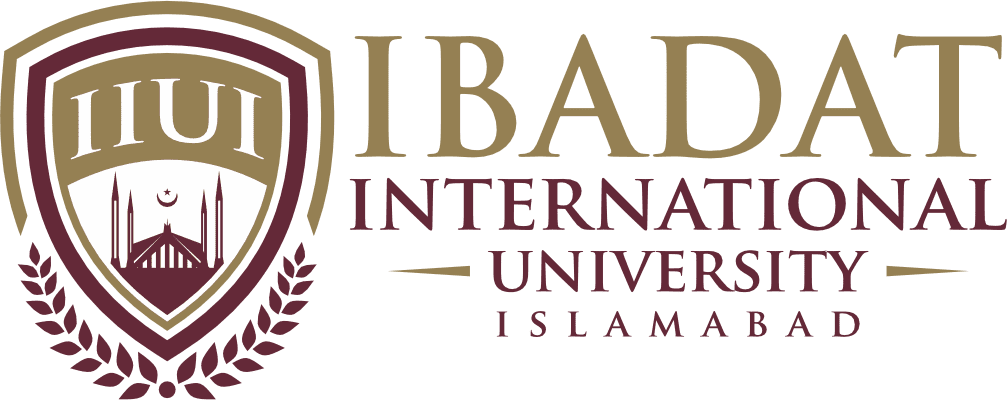FACULTY OF ALLIED HEALTH & BIOLOGICAL SCIENCES
Bachelor of Science in Emergency Care Technology
Department
Health Professional Technologies
Level
Undergraduate
Semesters
08
Credit
138
INTRODUCTION
This program is designed to prepare students for careers in emergency medical services (EMS) by equipping them with the clinical knowledge, technical skills, and practical experience needed to handle medical emergencies. It focuses on critical decision-making, advanced life-saving procedures, and effective performance under pressure. The curriculum covers medical sciences, trauma care, patient assessment, and the use of emergency technologies, blending theoretical instruction with hands-on training. Students also gain insights into disaster response and emerging trends in EMS, enabling them to contribute effectively to public health through high-quality emergency care.
- Program Duration
- Entry Requirements
Program Duration: 4 Year
Timing: Morning (Monday-Friday)
Location: 6.7 Km Japan Road, Sihala, Islamabad.
Recognized By: Higher Education Commission
Entry Requirements:
- FSc. (Pre-medical) with minimum 50% marks.
- A Levels with IBCC Equivalency Certificate
- 2 years Diploma in relevant field with IBCC Equivalency Certificate
Entry Test: Ibadat International University Entry Test (if).
COURSE CODE | SEMESTER-I | CREDIT HOURS | PRE-REQUISITE |
ECT-6301 | Anatomy | 3(2+1) | NA |
ECT-6303 | Physiology-I | 3(2+1) | NA |
ECT-6102 | Biochemistry | 3(2+1) | NA |
ECT-6104 | Functional English | 3(3+0) | NA |
ECT-6112 | Computer Education | 3(2+1) | NA |
ECT-6108 | Islamic Studies/Ethics | 2(2+0) | NA |
ECT-6109 | Seerat-Un-Nabi (P.B.U.H) | NON-CREDIT | NA |
Total Credit Hours=17 | |||
COURSE CODE | SEMESTER-II | CREDIT HOURS | PRE-REQUISITE |
ECT-6101 | Communication Skills | 2(2+0) | NA |
ECT-6103 | Behavioral Sciences | 2(2+0) | NA |
ECT-6110 | Pakistan Studies | 2(2+0) | NA |
ECT-6111 | Ideology & Constitution of Pakistan | 2(2+0) | NA |
ECT-6106 | Biostatistics | 3(3+0) | NA |
ECT-6114 | Civics and Community Engagement | 2(2+0) | NA |
ECT-6304 | Physiology-II | 3(2+1) | ECT-6303 |
ECT-6305 | Principles and Techniques in Emergency Technology | 2(2+0) | NA |
Total Credit Hours=18 | |||
COURSE CODE | SEMESTER-III | CREDIT HOURS | PRE-REQUISITE |
ECT-6306 | Patient & Equipment Safety | 2(2+0) | NA |
ECT-6205 | Hematology | 3(2+1) | NA |
ECT-6307 | Pathology | 3(2+1) | NA |
ECT-6308 | Fundamentals of Infection | 3(2+1) | NA |
ECT-6113 | Entrepreneurship | 2(2+0) | NA |
ECT-6105 | Technical Writing & Presentation Skills | 3(3+0) | NA |
ECT-6201 | Anesthesia Equipment and Monitoring | 2(2+0) | NA |
Total Credit Hours=18 | |||
COURSE CODE | SEMESTER-IV | CREDIT HOURS | PRE-REQUISITE |
ECT-6107 | Research Methodology | 3(3+0) | NA |
ECT-6309 | Epidemiology and Public Health | 3(3+0) | NA |
ECT-6308 | Sterilization & Disinfection | 3(2+1) | NA |
ECT-6203 | Diagnostic Imaging | 3(2+1) | NA |
ECT-6310 | Medical & Trauma Emergency | 3(2+1) | NA |
ECT-6311 | Pharmacology-I | 3(3+0) | NA |
Total Credit Hours=18 | |||
COURSE CODE | SEMESTER-V | CREDIT HOURS | PRE-REQUISITE |
ECT-6312 | Pharmacology-II | 3(3+0) | ECT-6311 |
ECT-6302 | Microbiology | 3(3+0) | NA |
ECT-6313 | Surgical Emergency | 3(2+1) | NA |
ECT-6314 | Shock Management | 3(2+1) | NA |
ECT-6315 | Ambulance Operation and Management | 3(2+1) | NA |
ECT-6316 | Peri Operative Care | 3(2+1) | NA |
Total Credit Hours=18 | |||
COURSE CODE | SEMESTER-VI | CREDIT HOURS | PRE-REQUISITE |
ECT-6204 | Medical Ethics | 2(2+0) | NA |
ECT-6317 | Disaster Management | 3(2+1) | NA |
ECT-6318 | Cardiovascular Care | 3(2+1) | NA |
ECT-6319 | Emergency Skills in Special Diseases | 3(2+1) | NA |
ECT-6320 | Burn and Toxicology | 3(2+1) | NA |
ECT-6321 | Forensic Medicine | 3(3+0) | NA |
Total Credit Hours=17 | |||
COURSE CODE | SEMESTER-VII | CREDIT HOURS | PRE-REQUISITE |
ECT-6322 | Neonatal and Pediatric Critical Care | 3(2+1) | NA |
ECT-6323 | Supervised Clinical Practice-I | 3(0+3) | NA |
ECT-6325 | Diagnostic Procedures | 3(2+1) | NA |
ECT-6326 | Artificial Intelligence in Emergency and Intensive Care | 2(2+0) | NA |
ECT-6327 | Neurological Emergency | 3(2+1) | NA |
ECT-6328 | Procedures and Therapeutic Interventions | 3(2+1) | NA |
Total Credit Hours=17 | |||
COURSE CODE | SEMESTER-VIII | CREDIT HOURS | PRE-REQUISITE |
ECT-6324 | Supervised Clinical Practice-II | 3(0+3) | NA |
ECT-6329 | Emergency Medicine | 3(2+1) | NA |
ECT-6330 | Respiratory Therapy | 3(2+1) | NA |
ECT-6401 | Internship | 3(0+3) | NA |
ECT-6501 | Research Project | 3(0+3) | ECT-6107 |
CAREER PROSPECTUS
Graduates of the BSECT program work as diverse career prospects in various healthcare settings, including hospitals, emergency response teams, and disaster management units.
VISION & MISSION
The Department of Health Professional Technologies (DHPT) within the Division of Allied Health and Biological Sciences (AHBS) at Ibadat International University is dedicated to clinical and academic excellence in teaching and research. The ultimate goal of the department will be to produce medical professionals outfitted with highest ethical standards in morality, creativity, application of knowledge and its dissemination to address and resolve the issues of our time. The core purpose of the department is to produce graduates who have broad perspectives of healthcare and bringing innovation, critical-thinking and lifelong learning skills into health-care settings. Our aim is to augment the number of competent allied healthcare professionals, to fulfill shortage of trained healthcare professionals with a particular focus on their clinical training which is demonstrated through our clinical- and research-oriented curriculum. Department is committed to provide patient-centered healthcare education so that these graduates can meet national and international standards.
PROGRAM OBJECTIVES
The aim of program is to equip the students with relevant professional knowledge, skills, techniques and ethical values to enable them to apply their acquired expertise at the level between the doctors and the patient for efficient health service delivery. This program produces the graduates having research knowledge and skills. On the bases of knowledge and skills they will be able to do the evidence-based practice.



